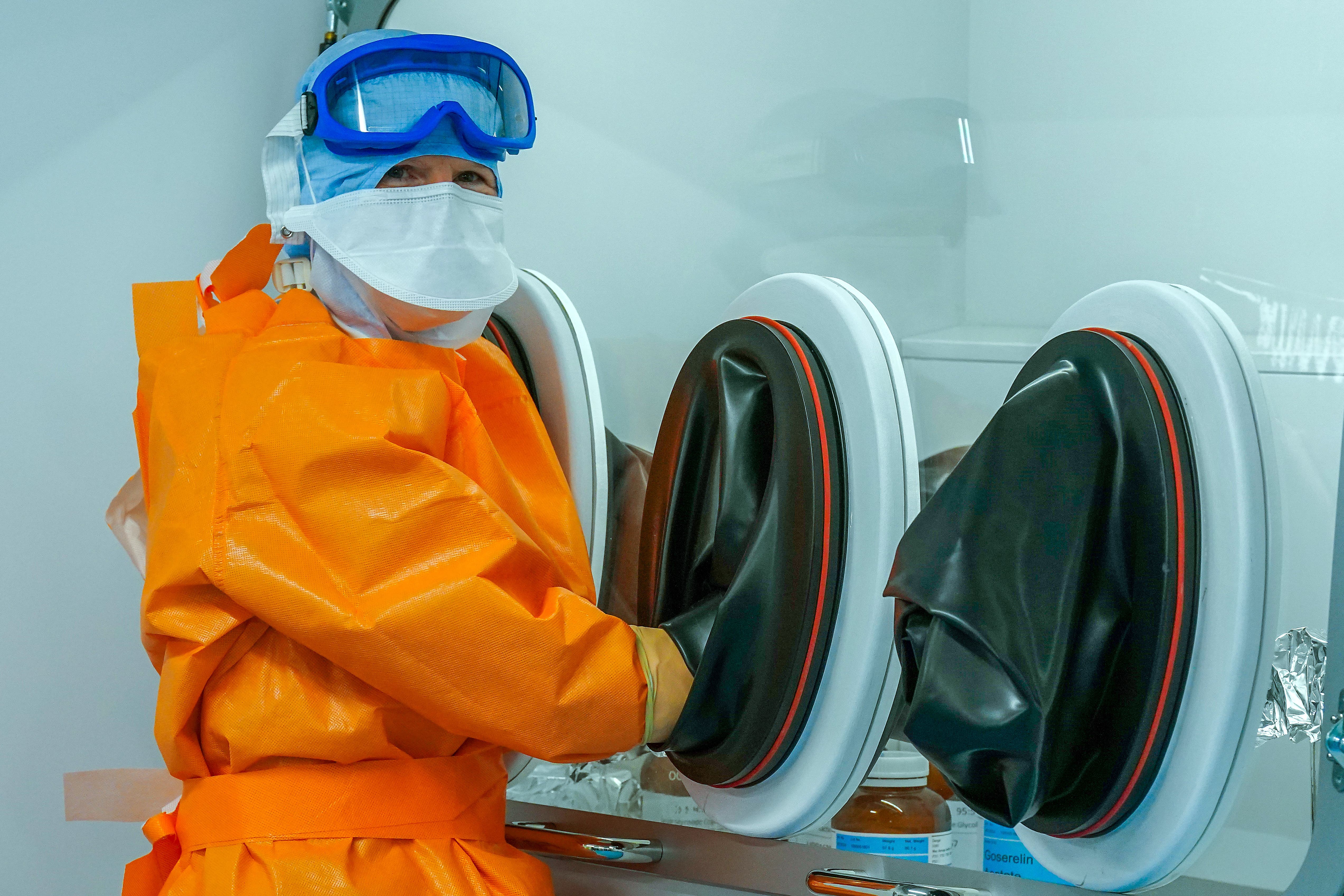AstraZeneca buys Canadian cancer treatment firm for close to £2bn
Fusion Pharmaceuticals uses a chemical element which helps target and kill cancer cells while minimising damage to surrounding healthy cells.

Your support helps us to tell the story
From reproductive rights to climate change to Big Tech, The Independent is on the ground when the story is developing. Whether it's investigating the financials of Elon Musk's pro-Trump PAC or producing our latest documentary, 'The A Word', which shines a light on the American women fighting for reproductive rights, we know how important it is to parse out the facts from the messaging.
At such a critical moment in US history, we need reporters on the ground. Your donation allows us to keep sending journalists to speak to both sides of the story.
The Independent is trusted by Americans across the entire political spectrum. And unlike many other quality news outlets, we choose not to lock Americans out of our reporting and analysis with paywalls. We believe quality journalism should be available to everyone, paid for by those who can afford it.
Your support makes all the difference.Drugs giant AstraZeneca has agreed to buy a Canadian company which has a promising new drug designed to treat prostate cancer, in a deal worth as much as 2.4 billion dollars (£1.9 billion).
The London-listed firm said the deal for Fusion Pharmaceuticals would be a “major step forward” in Astra’s plan to help replace chemotherapy and radiotherapy.
The “next-generation radioconjugates” that Fusion is developing will help doctors target cancer cells more directly than in the past.
That will help minimise the damage to nearby healthy cells and can also enable the treatment of tumours that traditional methods cannot reach.
Fusion’s technology is based on a version of the chemical element actinium.
Called actinium-225, it can be used to produce alpha particles, which help to kill cancer cells by disrupting its DNA.
Unlike most other radiation therapy, alpha particles only travel short distances – up to three cells away – so can kill tumours much more selectively without causing as much damage to healthy cells.
But one of the downsides is that very little actinium-225 is produced in the world today.
According to Andrew Robertson, a scientist at the University of British Columbia, there is only enough of it to treat a few thousand patients every year.
Most actinium-225 comes from decades-old nuclear weapons material, Dr Robertson wrote in a 2019 article.
Fusion Pharmaceuticals came out of the Centre for Probe Development and Commercialisation, which was founded by Dr John Valliant, of Ontario’s McMaster University, in 2008.
Dr Valliant, who is chief executive of Fusion, said: “This acquisition combines Fusion’s expertise and capabilities in radioconjugates, including our industry-leading radiopharmaceutical R&D, pipeline, manufacturing and actinium-225 supply chain, with AstraZeneca’s leadership in small molecules and biologics engineering to develop novel radioconjugates.”
The deal between the companies will be worth 2.0 billion dollars (£1.6 billion) upfront, with a further 400 million dollars (£315 million) possible if certain conditions are met.
Susan Galbraith, AstraZeneca’s executive vice president of oncology R&D, said: “Between 30% and 50% of patients with cancer today receive radiotherapy at some point during treatment, and the acquisition of Fusion furthers our ambition to transform this aspect of care with next-generation radioconjugates.”